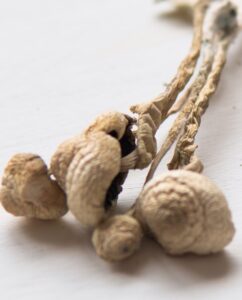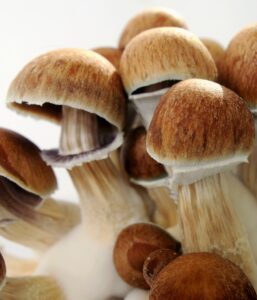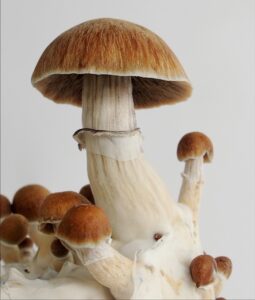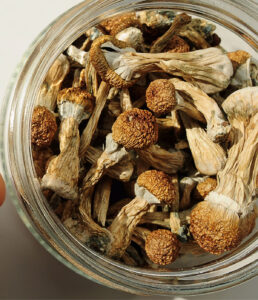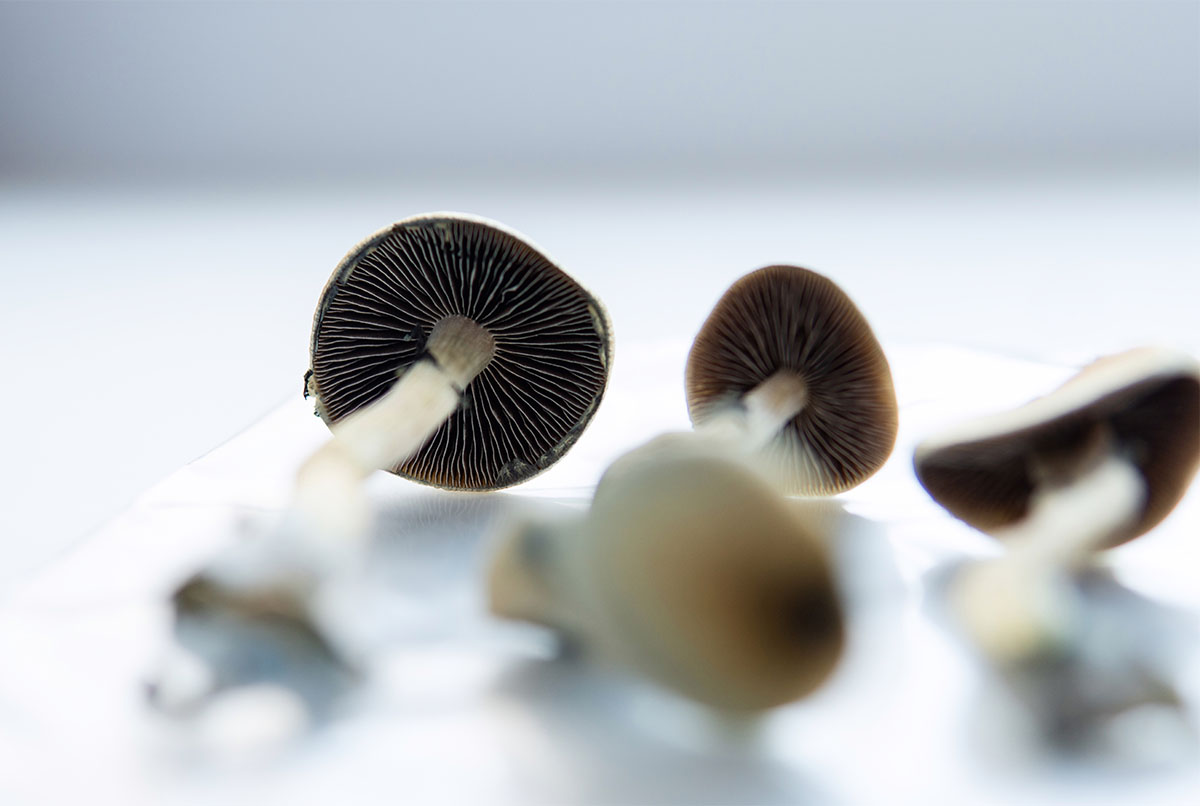
Summary of article by Nancy A. Melville, published in Medscape, on June 2, 2022.
A recent study published in the New England Journal of Medicine has demonstrated that psilocybin, the psychoactive ingredient found in hallucinogenic mushrooms, is effective in treating severe depression for up to 12 weeks. The multicenter, double-blind, randomized, controlled trial involved 233 patients diagnosed with major depressive disorder. Patients were given two doses of psilocybin in conjunction with supportive psychotherapy.
The study found that patients who received psilocybin exhibited significant reductions in depression severity. At week 1, 71.2% of patients experienced a clinically meaningful response, with 56.9% maintaining this response at week 12. The study authors noted that the results compare favorably to the effectiveness of conventional antidepressants, which often require continuous use for several weeks before showing any significant benefits. The rapid onset of psilocybin’s antidepressant effects, coupled with its sustained response, offers a potentially valuable treatment option for those suffering from severe depression.
Side effects reported in the study were generally mild and transient, with the most common being headache, nausea, and transient anxiety. Serious adverse events were rare, and no participants experienced persistent psychosis or hallucinations. The research team emphasized that the therapy was conducted under controlled, supervised conditions, and the results may not necessarily apply to unsupervised use of psilocybin.
Despite the promising findings, the researchers acknowledged that there is still much to learn about psilocybin-assisted therapy. Questions remain regarding the ideal dosing regimen, the long-term safety and efficacy of the treatment, and the potential for interactions with other medications. Furthermore, the study population primarily consisted of white, well-educated participants, potentially limiting the generalizability of the results.
The study’s results add to the growing body of evidence supporting the use of psychedelic substances in treating mental health disorders. Previous research has shown promising results for the use of psilocybin in alleviating anxiety and depression associated with life-threatening illnesses, as well as in treating alcohol and tobacco dependence.
In conclusion, the study suggests that psilocybin-assisted therapy may be an effective treatment option for severe depression, with benefits lasting up to 12 weeks. However, further research is required to determine the optimal dosing regimen, long-term safety and efficacy, and the applicability of these findings to a broader population. As interest in psychedelic-assisted therapy continues to grow, it will be crucial to thoroughly investigate the potential risks and benefits of this emerging treatment modality.



